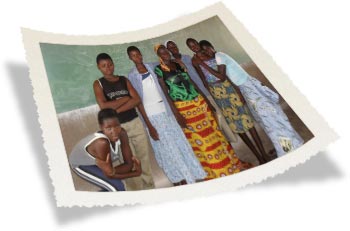In Burkina Faso, girls are at a severe disadvantage when compared with the male population. Cultural issues loom large in Burkina Faso and teenage girls are the most severely impacted.
In many parts of the country local customs dictate that females be circumcised at an early age, generally between the ages of 3 and 8 years and often without the benefit of anesthesia.
Justification for this practice is that the girl will maintain her ‘chastity and/or purity’ until she is married to the man to whom she has been promised. Moreover, in some clans there is a superstition attached to the procedure.
The practice involves the removal of the entire clitoris, the labia minora, and the labia majora. The vulva is then fastened with thread, leaving only a small opening for urination and menstruation. Once the girl is married, she is cut open in order for intercourse to occur.
Although the government has made some efforts to try to curb this ‘barbaric’ practice, it is still widespread in many rural areas.
Although the legal age for marriage is 17 for girls in Burkina Faso, many are forced to marry at a much earlier age, with more than 1/3 of married girls (20–24 year-olds) in polygamous unions as second, third or fourth wives and usually partnered to much older men.
It is not uncommon for men to father 20-25 children. Not surprisingly, polygamy is more prevalent in rural than in urban areas (40% of rural marriages, compared with 16% of urban marriages). For example, 6% of girls in rural communities are married before their 15th birthday. Child marriages are more likely to be polygamous, 46% of women who are married before the age 18 are in polygamous unions, compared with 14% of women who are married at or after the age of 18.
Girls who are forced into these polygamous marriages usually have little or no schooling, know little about reproductive health and experience unsafe and often unwanted sexual relations with a spouse who is usually much older. They are also likely to bear a child before they are physically and psychologically prepared to do so.
The girls are promised either by the chief of the clan, their fathers, or their paternal grandfathers. Although in most cases young girls are promised by their fathers, the clan chief wields the greatest authority and can determine the fate of a teenage girl even against the father’s wishes. It is worth mentioning that in contrast with the paternal grandfather, the maternal grandfather holds no power. In some cases, the men of the clan meet to determine the fate of the young girl.
The legal age for marriage is largely ignored and practices are based on social, physical, and economic considerations. In some forced marriages, families avoid a girl’s potential rejection of the choice of spouse and/or the timing of the marriage by not informing the girl of the decision until the very day of the wedding. In some cases, during the period leading up to their marriage, girls will receive instruction on housework, childcare and the appropriate (submissive) behaviour to adopt toward their husbands and in-laws. They also experience tighter restrictions on their mobility and relationships.
It has been the experience of many of the teenage girls at the Ste. Bernadette Centre that forced polygamous marriages often occur in exchange for goods or services. For example, a girl can be promised to a much older man who has lent a donkey to the family, donated a chicken or merely provided a can of soda pop. According to some clan customs and depending on the circumstances, a male visitor to a home where a woman is pregnant is expected to stay until the baby is born. If the newborn is a boy, he must remain on friendly terms with the family. If the newborn is a girl, she is promised in marriage to the visitor. It is fair to say that in these cases, girls are treated as chattel.
Once married these girls are closely supervised and limited in their movements in the village, in their access to information, and in their participation in leisure activities. Their lives are focused on maternity and management of the household and their mobility is restricted to areas related to those two concerns. Traditional spaces where they are allowed more freedom of movement include water wells, places of worship, marketplaces and traditional women’s groups.
Some girls are very submissive and accept their proposed husbands, but some are so totally repelled by their future husbands that they are prepared to risk their lives to run away. Many girls are revolted at the thought of sharing a husband.
What does “rejection” mean for a teenage girl?
Rejection means that a teenage girl is no longer welcome by her husband and her in-laws. Rejection also means that a teenage girl cannot return to stay with her own family. She is consequently left with nothing and no one: she is abandoned. This is a dangerous plight for a teenage girl anywhere in the world, let alone in Burkina Faso.
There are other reasons for rejecting a wife. For example, a husband who feels that his wife is not satisfactorily performing sexually can also reject her. Intercourse is solely for the purpose of meeting the needs of the man. That is to say, the act of intercourse is to pleasure him and him alone. Neither love nor intimacy nor a woman’s pleasure are considerations.
Girls are expected to bear children early. Girls in Burkina Faso typically give birth within the first 20 months of marriage, and a girl who fails to bear children immediately after marriage risks rejection by the husband or his family.
On average, only 50% of births where the mother is 20 years or younger are attended by skilled personnel during childbirth. Of 125 countries ranked in Save the Children’s Mothers ‘ Index, which compares the well being of mothers and children, Burkina Faso ranked next to last.
Early wedlock can also hold other health risks. These include the possibility of obstetric fistulas in girls who fall pregnant after being married at an early age. This term refers to a condition where the tissue between a girl’s bladder, vagina and rectum is ripped – possibly during an arduous childbirth. It can cause a girl to lose control over the excretion of urine and feces. This in turn sets the stage for infection – and even death. Those afflicted by the condition are generally between the ages of 13 and 15 and often lose their babies during childbirth.
The low status of girls and women makes them especially vulnerable to the HIV and AIDS epidemic. Burkina Faso has one of the highest HIV/AIDS rates in West Africa.
To make matters worse, child marriage has been proven to elevate a girl’s risk of HIV infection for several reasons: (1) husbands of child brides tend to be older than the boyfriends of unmarried girls and therefore have a greater lifetime risk of carrying sexually transmitted infections such as HIV; (2) a considerable age gap may exaggerate the power imbalance in the marital relationship and inhibit communication about safe sex; (3) marriage is almost always accompanied by increased frequency of sexual relations and strong pressure to bear children, ruling out any planned pregnancy.
Educational enrollment is low for all teenage s in Burkina Faso, particularly for girls and those living in rural areas. Less than one in three girls aged 10–14 are in school, and only 7 percent of rural girls complete primary school (grade 6).
Children are often kept home from school to help with household work, to care for younger children, or because the family may not be able to afford the cost of books, uniforms, and school fees. In 2011, the expected years of schooling for children under 7 in Burkina Faso was 6.3. In education ratings, Burkina Faso ranks 184 out of 187 countries, just ahead of Eritrea, Niger and Somalia. The biggest gap occurs between urban boys and rural girls.
Other facts:
• Out of the world's 130 million out-of-school youth, 70 percent are girls.
• AIDS spreads twice as quickly among uneducated girls as it does among girls who have received even some schooling.
• Two-thirds of the world's illiterate adults are women.
• In many places young girls are forced to leave school in order to enter into early marriage and pregnancy and bring income to their families
Trafficking is a significant problem in Burkina Faso because the country is a source, transit route, and destination for the selling of children and teenagers.
An estimated 165,000 Burkinabès are trafficked for forced labour and sexual exploitation within Burkina Faso as well as to Benin, Côte d’ Ivoire, Ghana, Mali, Niger, Nigeria and Togo. In addition, Malian and Nigerian children are frequently transported into Burkina Faso. Victims of trafficking are subject to inhumane conditions in domestic work, metal work and agriculture. About half of trafficked children are girls, and slightly more than half were trafficked by their families.
Examples of GBV affecting women and girls in Burkina Faso include, but are not limited to, differential access to food and services, sexual exploitation and abuse, sexual harassment, dowry/bride price abuse, deprivation of inheritance or property, domestic or intimate partner violence and emotional/physical abuse.
A fundamental aspect of GBV against women and girls is that the violence is used in cultures around the country as a way to preserve and maintain females’ subordinacy vis-à-vis males. In other words, acts of violence against women and girls are both an expression of and a way to reinforce male domination--not just over individual women and girls, but over females as an entire class of people. The violence is rooted in power imbalances and structural inequality between men and women. Keeping girls out of schools and limiting their access to information is the primary way that elders ensure girls cannot break from this life cycle.

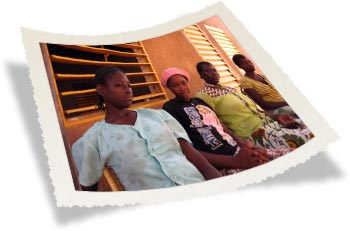
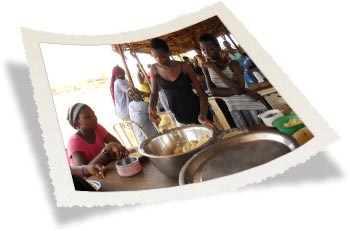
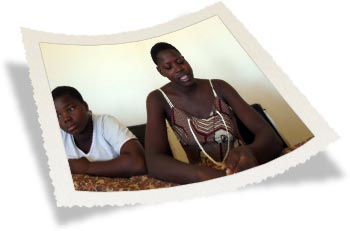
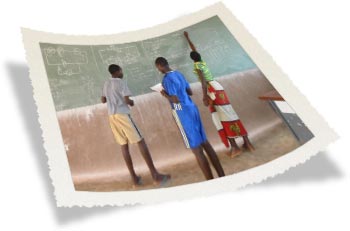 Human Trafficking/Child Labour
Human Trafficking/Child Labour